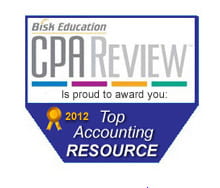The Presidential Election 2012: The Economy and the Stock Market
What impact will the economy and stock market have on the upcoming Presidential election? What impact will the Presidential election have on the stock market?
With President Barack Obama seeking re-election in 2012, I examined every Presidential race since 1932. During this 80-year period, 11 of the 20 Presidential contests involved incumbents seeking re-election. On only three of these 11 occasions did the incumbent lose. In each of these cases, it was the economy that was underperforming that resulted in the incumbent’s defeat. In 1932, President Herbert Hoover (R) lost to Franklin Delano Roosevelt (D). The United States was in the midst of The Great Depression, the unemployment rate was at 25%, and the stock market as measured by the Dow Jones Industrial Average had declined by 89% between 1929 and 1932. In 1980, President Jimmy Carter (D) lost to Ronald Reagan (R). That year inflation as measured by the consumer price index reached 13% and U.S. Treasury Bills were yielding 14%. The stock market in 1980 rose prior to the election. Finally, in 1992, President George H.W. Bush (R) lost to Bill Clinton (D). The U.S. was in a recession leading up to the election and the unemployment rate was relatively high 7.5%. The stock market in 1992 also rose prior to the election.
From the above, it was the economy that appears to have contributed to the incumbent’s defeat in all three cases. Only in 1932, did the extremely poor performance of the stock market also portend the incumbent’s defeat.
With this 80 year track record in mind, what conclusion can be reached with respect to the upcoming Presidential election? The first lesson is that incumbents rarely lose their re-election bids. However, when they do, it seems to be directly related to the economy. With the election just two months away, how will voters interpret the state of the U.S. economy? The unemployment rate is currently at a very high 8.3%. This monthly statistic will be updated on September 7, October 5, and November 2, just four days prior to the election. The current estimate for second quarter Gross Domestic Product growth is an anemic 1.7%, well below the recent historical average of 2.5% – 3.0%. The initial estimate for the third quarter will be released on October 26, less than two weeks before the election. The Standard & Poor’s 500, by contrast, has risen about 12% so far this year and has doubled since its low on March 9, 2009, just seven weeks after President Obama was sworn in. The U.S. economy has been gradually recovering from the Financial Crisis of 2008, which resulted in the most severe recession since the Great Depression. Will the Republican candidate, Mitt Romney, be able to convince a majority of voters that the economy has underperformed sufficiently that the incumbent should be replaced? Or will President Obama persuade voters that the economy has improved substantially since 2008-9, and that he deserves to be re-elected? Historical precedent indicates that it is the economy rather than the stock market that is likely to determine the result of this election.
Once this election is decided, how is the stock market likely to perform over the next four years? Going back to 1965, the S&P 500, on average, has performed better with a Democrat in the White House than with a Republican. The average annual compounded gain for the S&P 500 with dividends included, equaled 10.9% under a Democrat President, versus 7.3% with a Republican President. The compounded annual gain over this entire period was 9.1%. Since there is a large variability between the performance of the stock market across each four year presidential term, one cannot forecast with precision how the stock market will do in the near future. However, this result is worth noting.
(Note 1: I was a classmate of Mitt Romney at Harvard Business School in a corporate finance course during the Fall 1973 semester.)
(Note 2: I discussed this topic during a Maryland Public Television taped interview which was broadcast on September 20 at 7:30 p.m. The link to this TV interview is: http://www.rhsmith.umd.edu/news/stories/2012/SBCU-Sept-Kass.aspx)
This article has also been published by Seeking Alpha and Forex Pros:



